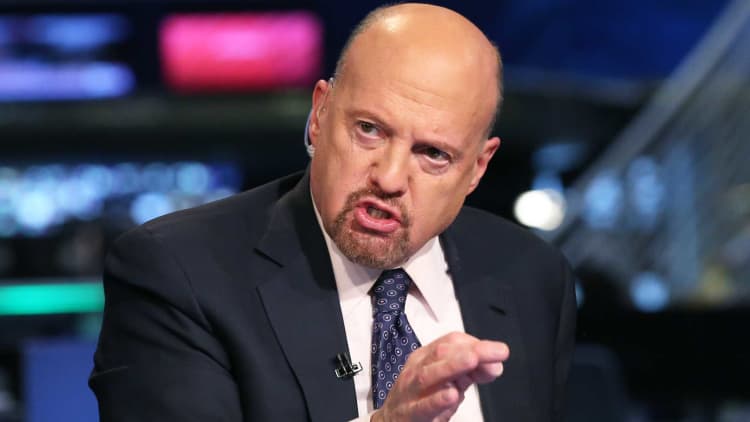
U.S. trade disputes and the House Democrats' impeachment inquiry of President Donald Trump are creating the most economic uncertainty in nearly two generations, CNBC's Jim Cramer said Friday.
"Washington is the biggest headwind to the economy that I can recall," Cramer said on "Squawk on the Street." "I have not seen it since Nixon, such a headwind. It fights you at every turn."
Cramer said he's worried that if Congress were unable to pass the replacement of the North American Free Trade Agreement, how could it ever OK any China trade agreement that might develop.
Exactly one week after telling Cramer on "Mad Money" on Sept. 17 that Democrats hope to get to "a path to yes" on the new United States-Mexico-Canada Agreement, House Speaker Nancy Pelosi announced the Trump impeachment inquiry.
"The idea of Nancy Pelosi sitting down with Trump, how's that possible," Cramer asked. He questioned how it would work for Pelosi to go to Trump saying, '"I'm trying to impeach you, let's make a deal'" on trade.
Cramer made his comments on "Squawk on the Street" shortly after the nation's unemployment rate in September dipped to 3.5%, matching levels not seen since December 1969, the end of then-President Richard Nixon's first year in office.
The "Mad Money" host said he was encouraged by the low jobless rate. However, he said there was enough sluggishness in other parts of the report to warrant another interest rate cut by the Federal Reserve.
"This is a number that says to me that the Fed can still cut," he said, stressing that the ISM's worst manufacturing reading in 10 years earlier this week adds to the case for the central bank to reduce rates for the third time this year.


